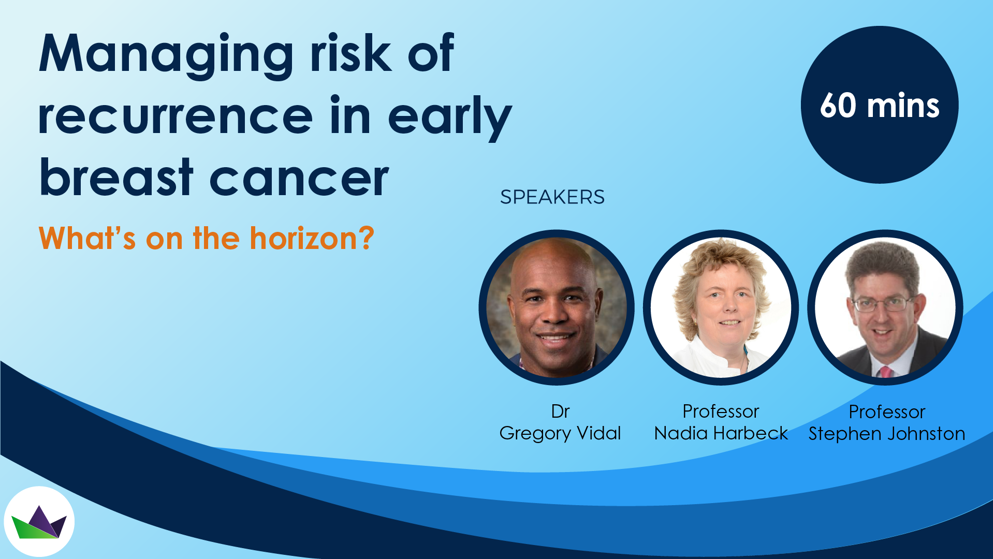
CDK4/6 Inhibitors in Breast Cancer
Make the most of breakthrough treatments for early and advanced breast cancer.
- Become an expert in navigating the treatment landscape for early and advanced breast cancer
- Apply your knowledge to stratify and assess patients on the basis of their risk of recurrence
- Identify patients with early and advanced breast cancer who may benefit from CDK4/6 inhibitor treatment
Dr Gregory Vidal, a medical oncologist at the West Cancer Centre and Research Institute and University of Tennessee, USA, explains why it is important for clinicians to keep on top of the current and future data for CDK4/6 inhibitors in breast cancer.
Breast cancer
An overview of breast cancer stages and CDK4/6 inhibitors
CDK4/6 inhibitor trials in breast cancer
Clinical trial data on CDK4/6 inhibitors in early and advanced breast cancer
CDK4/6 inhibitor selection
Selecting CDK4/6 inhibitors in advanced breast cancer
Recurrence in early breast cancer
Identifying risk of recurrence in early breast cancer
Publication digest
Concise infographic summaries on early breast cancer stratification
SABCS, ASCO and ESMO - CDK4/6 inhibitors in breast cancer
Congress highlights from SABCS 2022, ASCO and ESMO
Our Experts
Throughout this Learning Zone, you will hear from some of our CDK4/6 inhibitor and breast cancer experts, including:
- Dr Gregory Vidal is a haematologist/medical oncologist and clinical investigator at the West Cancer Centre and Research Institute and University of Tennessee, USA
- Dr Laura Spring is a medical oncologist and clinical translational investigator at the Massachusetts General Hospital Cancer Centre and Harvard Medical School, USA
- Dr Stephen Johnston is a Professor of Breast Cancer Medicine and Consultant Medical Oncologist, the Royal Marsden NHS Foundation Trust and the Institute of Cancer Research, UK
- Professor Nadia Harbeck is Head of the Breast Cancer Centre at LMU University in Munich, Germany
This content has been developed independently by Medthority who previously received educational funding from Eli Lilly in order to help provide its healthcare professional members with access to the highest quality medical and scientific information, education and associated relevant content.



